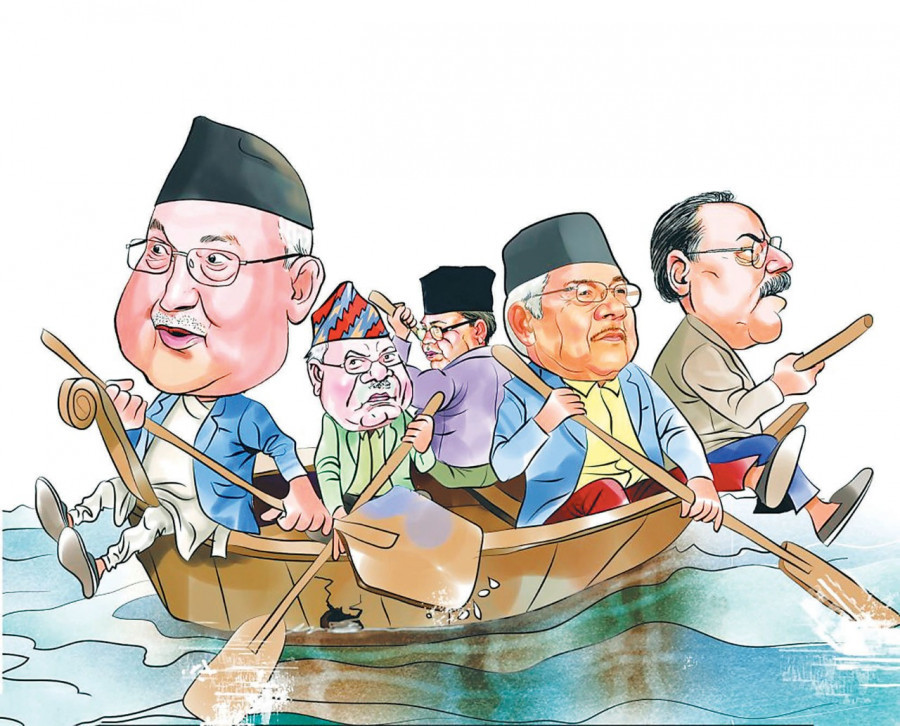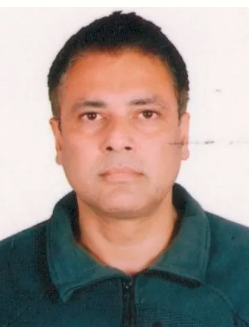Columns
The reign of private interests
A system that does nothing about conflict of interest is likely to foster corruption, inefficiency, and moral decline.
Basanta K Pokharel
“In Nepal, honesty cannot get you anywhere, but nothing is impossible for the crooked.” Quotes often represent our way of life, reminding us of a growing ecosystem that nurtures the corrupt and sycophants. The apathy of decision-makers in Parliament and the government in treating conflict of interest is remarkable and aptly fits the quote. Controlling corruption is necessary, but it cannot happen without our ability to detect and manage conflict of interest.
We have reached a stage where public funds made available to party cadres in a false pretence have become normal. A former prime minister or a president does not hesitate to defend state-sponsored health tourism. A manager of a blacklisted construction company who repeatedly delays projects and varies costs is often seen with a prime minister. We have forgotten when we last heard about higher-level appointments based on merit rather than party loyalty. Moreover, the recent announcement of the formation of the 10 thematic committees in the federal Parliament was wrapped in controversy due to the clear conflict of interest of the members. The list goes on to show how the private interests of public officials routinely topple the interests of the state.
There is a great “mystery” shrouded in conflict of interest incidents (leading to corruption) in Nepal. All of them recede after a few weeks of roaring sound bites. On a more profound reflection, strong bureaucracy-political patronage protects such acts. Even the unfolding Bhutanese refugee-human trafficking incident signals a potential link with former prime ministers. It says a lot about our current ability to manage conflicts of interest. Perhaps the popular wish list for transparency is inadequate to let public officials carry out their duties fairly. Most public sector decisions involving money, contracts, and appointments are driven by self-interest, so it requires nothing less than a broader legal-ethical framework as soon as possible. It is unlikely to happen without continuous popular pressure.
Despite the deep rot, we are not in a hurry to improve our ability to nip conflict of interest in the bud, or before it is morphed into corruption. A system that does nothing about conflict of interest is likely to foster corruption, inefficiency, and moral decline. Besides, doing something about conflict of interest protects civil servants from defamation risks. Because the conflict of interest is almost unavoidable in the public sector, we also do a disservice to “honest” public officials.
When approached for an opinion on the likely legal route for Nepal in managing the conflicts of interest, a retired Commission for the Investigation of Abuse of Authority (CIAA) official said, “Do you think the law will work? How do you tackle policy corruption?” Policy corruption mostly takes place for impunity and to legitimise conflict of interest. It is the use of policy for steering the resources to private interests (away from where it was originally intended). We can find plenty of examples also in international aid and the private sector. Acting against policy corruption is a complex work, as recipients are often agency or department leads and their networks.
It also means laws set up principles and define processes, but they cannot work alone. A response thus must navigate provisions and structures that are built to deter the application of the law, such as the provision that protects cabinet decisions from judicial scrutiny. It can undercut the power of conflict of interest laws. Whatever the rationale for this, the provision is now possibly the most used instrument for corruption in recent times. The creation of a “task force” in the refugee-human trafficking case is the type of structure used to mask corruption. This “effective” federal provision could soon find takers in other jurisdictions.
A former finance minister says modernising law enforcing and procuring ministries with technology could help. Of course, using online mediums for property declaration, procurement bidding, and conflict of interest declaration can certainly ensure heightened public scrutiny. However, we still need to learn much about how digital technology is misused to mask conflict of interest and provide opportunities for corruption. We also must be mindful that corruption occurs not only while formulating policies and awarding contracts but also during implementation and monitoring.
In order to address this problem, we need political allies. We cannot expect high-level political leaders to join hands to act against conflict of interest on their own. Electoral constituencies must put pressure on them to act. Some initiatives in this direction are urgent. But we must be careful as citizen platforms are increasingly hijacked by emerging or failing politicians, so the protests falter and rarely turn red hot to affect change. Young parliamentarians can play a constructive role in taking the debate further and should be approached as allies. But the concern is how they can overcome the barrier of toeing the party lines in parliamentary affairs.
A long-term consideration should be finding ways to change our behaviours so that officials can stop making such decisions. But attitudinal and behavioural change must swell up from the roots. This requires structural improvement in school education, public education, civil service, the media, soap operas, and our folk and pop songs. After all, as the adage goes, we are likely to choose leaders who are like us.
Finally, we don’t have to reaffirm that unattended conflict of interest in the public sector is a problem and needs to be managed systematically and comprehensively. We should focus more on forming alliances with like-minded young politicians and citizen groups and the type of required political, legal, and administrative arrangements. There are no two ways about the need for it.




 11.12°C Kathmandu
11.12°C Kathmandu















